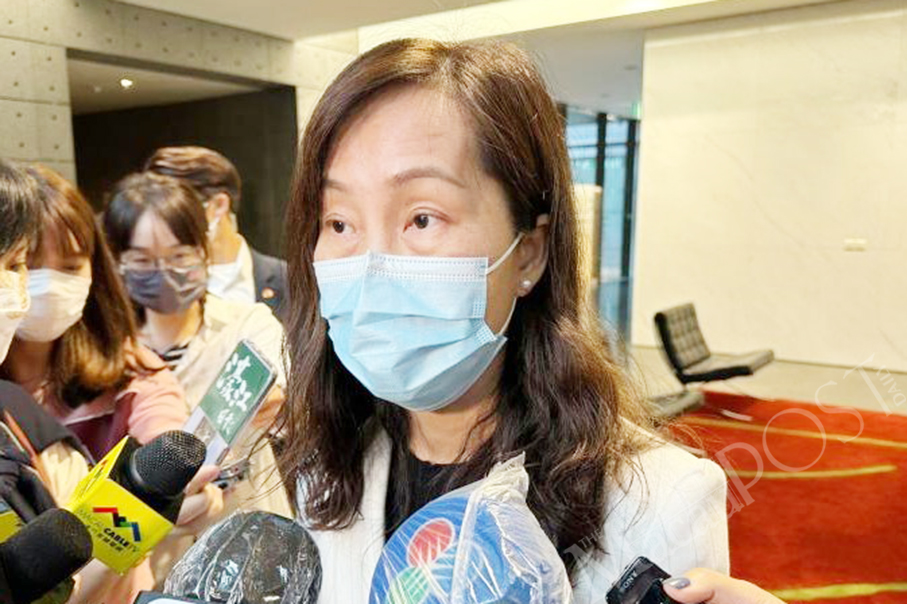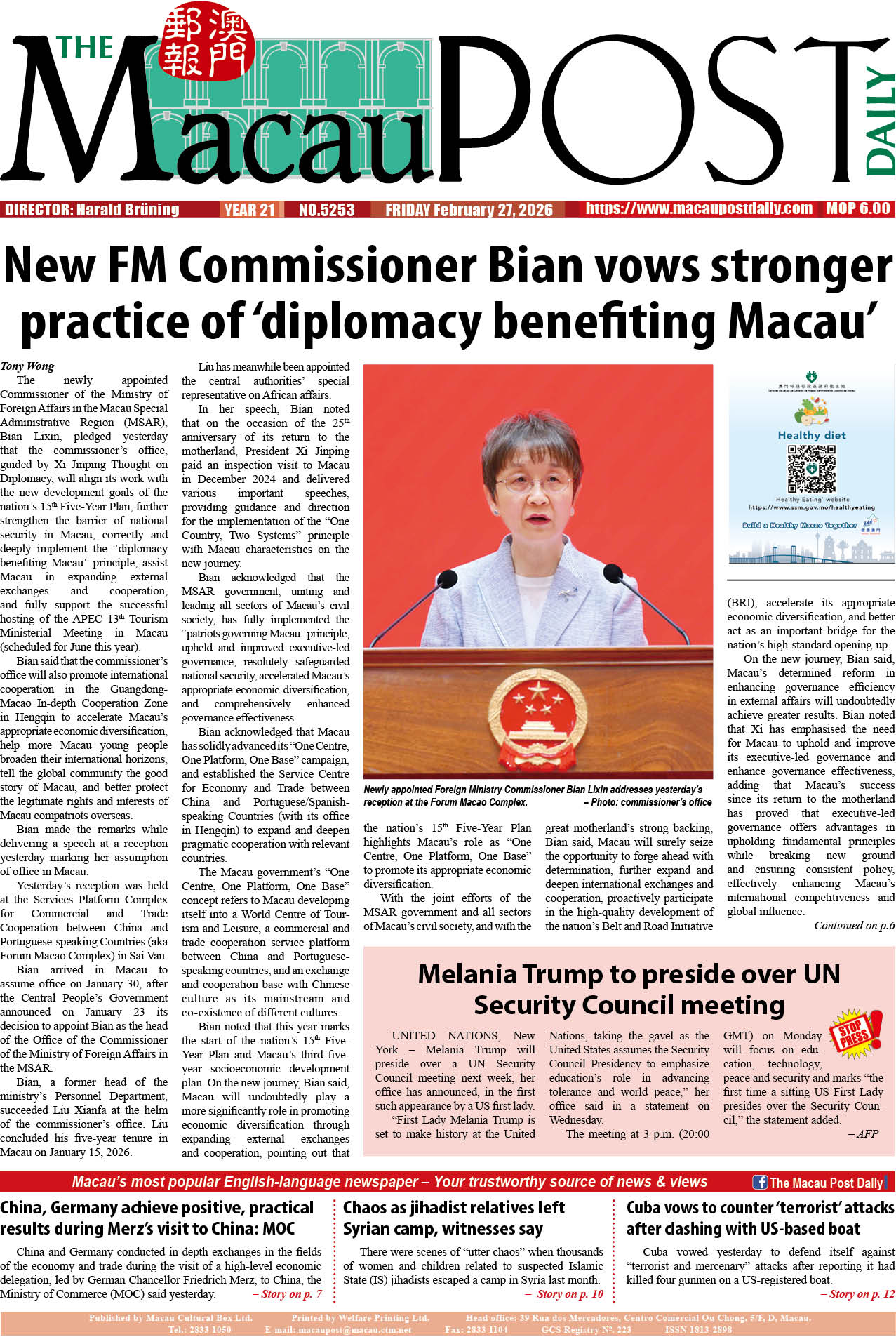Secretary for Social Affairs and Culture Elsie Ao Ieong U reaffirmed yesterday that for the time being Macau “has no conditions” for relaxing its regular mandatory nucleic acid testing (NAT) requirements for those working in high-risk COVID-19 key occupations, because, she said, various regions in the mainland, including the neighbouring province of Guangdong, are being affected by new local COVID-19 cases.
Ao Ieong made the remarks while speaking to reporters at the Macau Cultural Centre (CCM) in Nape after attending yesterday’s ceremony marking the formal commencement of the Judicial Year 2022/23.
The policy secretary underlined that only after the overall COVID-19 situation in the mainland has gradually stabilised, would the Macau government consider easing the requirements, such as testing frequencies, of its regular mandatory NAT programme for high-risk COVID-19 key occupations.
Since Macau returned to its normalised COVID-19 prevention and control period on August 8 from its outbreak that began on June 18 and started to subside in late July, the Health Bureau (SSM) has added more occupations and professions to its regular mandatory NAT programme for high-risk COVID-19 key occupations than before June 18. Around four dozen occupations and professions are covered by the current version of the government’s regular mandatory NAT programme. They are subject to different testing frequencies depending on their respective COVID-19 risks, namely a nucleic acid test every day or every other day, a nucleic acid test plus a rapid antigen test (RAT) every four days, and a nucleic acid test every seven days.
The Health Bureau noted earlier this month that the government’s regular mandatory NAT programme for high-risk COVID-19 key occupations currently covers around 190,000 people.
Speaking to reporters yesterday, Ao Ieong said that although Macau’s current COVID-19 situation is stable, new local COVID-19 cases are being reported in various cities and regions in the mainland.
In particular, Ao Ieong noted, different cities in Guangdong have reported new local COVID-19 cases since early this month, such as the neighbouring city of Zhuhai and its adjacent Zhongshan city.
The policy secretary also used herself as an example, saying yesterday that she had undergone a daily nucleic acid test for three days and a daily rapid antigen test for two days.
All those attending yesterday’s ceremony marking the formal start of the Judicial Year 2022/23 had been required to undergo a COVID-19 nucleic acid test. In addition, they were required to undergo a self-test with an RAT kit yesterday.
Govt mulls shortening quarantine for foreign GP racers
Meanwhile, Ao Ieong also told reporters yesterday that the Macau government was studying the feasibility of shortening its hotel quarantine period for foreign racers competing in this year’s Macau Grand Prix (MGP).
The 69th Macau Grand Prix will take place on November 17-20.
The Macau government said earlier this week that for the time being around 10 foreign motorcycle riders were expected to come to Macau to compete in the Motorcycle Grand Prix.
Currently, all those arriving in Macau from the Chinese regions of Hong Kong and Taiwan or foreign countries must undergo seven days of hotel quarantine.
Ao Ieong said yesterday that the Macau government was still studying detailed arrangements for COVID-19 measures to be implemented for foreign racers upon their arrival in Macau.
Ao Ieong said that the Macau government has still not come up with a final decision on the matter. She said that one of the government’s possible options is that foreign racers would only be required to undergo hotel quarantine for four or five days upon their arrival in Macau, after which they would be subject to “closed-loop management” measures for the remaining two or three days, during which they would be required to undergo a daily COVID-19 nucleic acid test.
Ao Ieong underlined that the Health Bureau was still assessing the feasibility of the option.
Meanwhile, Ao Ieong also underlined the need for the use of venue codes despite the fact that Macau currently does not have a local COVID-19 outbreak.
People entering various premises and facilities in the city are currently required to scan contact-tracing-function QR codes, aka venue codes, with their Macau Health Code mobile app in order to record that they have visited there.
Ao Ieong said that “everybody may think that the use of venue codes seems useless when Macau does not have a local COVID-19 outbreak”. She noted that in case Macau reports new local COVID-19 cases, the use of venue codes would be very useful for health officials to quickly identify affected people in their epidemiological investigations.
According to the Health Bureau (SSM), Macau’s COVID-19 tally of confirmed and asymptomatic cases stood at 793 and 1,700 yesterday, respectively, of which 787 and 1,688 have meanwhile been cured. Macau’s COVID-19 death toll remained at six. Macau confirmed its first COVID-19 case on January 22, 2020.

Secretary for Social Affairs and Culture Elsie Ao Ieong U talks to reporters at the Macau Cultural Centre (CCM) in Nape yesterday. – Photo courtesy of TDM







